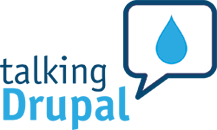Definitive Guide to Drupal 7: Correction
There is an important correction to be made to the top-selling Drupal book, the Definitive Guide to Drupal 7.
Agaric is Not Hiring (but for you, we might make an exception)
Agaric, as a worker collective, does not have bosses and employees. We have skilled, hard-working teammates coming together to figure out and do ... everything.
First Annual May First People Link Membership Meeting
Congratulations to the new leadership committee for May First People Link!
In Chicago? Don't Have a DrupalCon Ticket Yet? But You're Reading This on a Weekend?
Update: Ticket taken. But if you want to come, please read below the fold.
See Permissions' Machine Names (and much more) with Xray Module for Drupal 7
With Drupal 7's third and final release candidate unleashed on us all this morning, it is long past time to help the #D7CX movement with a seasonal offering of our own.
+1 to Ending comment-to-subscribe on Drupal.org
As starving authors we at Agaric don't have a lot of cash to burn right now, but we've thrown $25 in the project to make it possible to subscribe to drupal.org issues without commenting. (On top of whatever we donated when this request for funding went out a year and a half ago).
Drupal Work Collectives
Agaric proposes the creation of a new kind of workplace, essentially a Drupal commune, but really more like an open source free software idea & brainstorming commune, kind of along the same lines as an artist's or writer's colony.
We're Writing a Book!
Yes it's true, for the past few months we've been hard at work with a lot of other co-authors on The Definitive Guide to Drupal 7.
Agaric Backs Community Coworking Center in NYC
Thinking it would be a great place to work a day or two while in New York City for clients or DrupalCamps, Agaric dropped a few dollars in the Kickstarter fund for New Work City: Community Coworking Center for Independents in NY.
Agaric Sponsors Modulecraft for the Building of Drupal Shared business, Development, and Training Tools
For community shared business, development, and training tools, Agaric throws a little sponsorship at modulecraft.
Agaric Provides Very Minor Assist in Readying Insert Module for Drupal 7
Benjamin Melançon of Agaric helped with a patch for the Drupal 7 version of Insert module.
Agaric?
What the word agaric means and why Agaric took it for our cooperative's name.
Designed to Life
Functionality designed to your life is the Agaric Design signature. Utilizing open source, free software from around the world, Agaric Design websites are impeccably crafted with a modern, sophisticated and understated spirit.
The Story on Agaric
I've always had a passion for good design and healthy coding, even back in the days of owning a web site cart in downtown Natick. Back then, my business partner and I made all natural HTML roll-up web sites and, as an incentive for customers to wait in line, we baked Drupal into different flavored designs.
Shortening Sequential Lists
In Other Words can also shorten sequential lists by skipping over the items in the middle of the sequence. For example, if the following full list is available:
Sunday, Monday, Tuesday, Wednesday, Thursday, Friday, Saturday
And a content author selects the following from them:
Monday, Tuesday, Wednesday, Thursday
The In other words: Sequential terms formatter can be configured to interpret this and output:
Monday through Thursday.
It even accounts for breaks between sequential items. For example:
Monday through Thursday and Saturday.
And if you want to get real fancy, you can group terms together under a single label, such as interpreting Saturdays and Sundays as "the weekend".
Finally, you can have In Other Words output a single phrase if all items are selected. For example, "All Days".
Do so by using the In Other Words: Sequential terms field formatter, which supports term reference fields.

Drupal upgrades
Migrating content to your new site
Pagination
- Previous page
- Page 10

